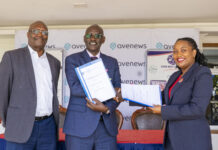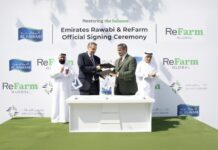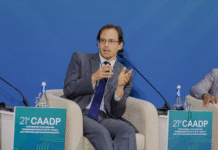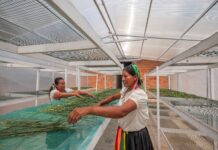Rwanda through its Agriculture and Animal Resources Development Board (RAB) has embarked on an ambitious $100.37 million project to spur growth of its dairy industry.
According to RAB, the Rwanda Dairy Development Project – Phase 2 (RDDP) stands as the most extensive dairy initiative ever undertaken in Rwanda’s history.
The project aims to tackle the persisting challenges hindering the viability and sustainability of the dairy value chain.
These challenges encompass low milk productivity per cow resulting from restricted access to quality forage and water, insufficient capacity among producers and cooperatives, inadequate market information and infrastructure, and a dearth of investment across the value chain.
The implementation phase of the project will span six years, from 2024 to 2029, across 27 districts.
As outlined in the project design report by the International Fund for Agricultural Development (IFAD), Rwanda’s total cattle population is estimated at 1.6 million heads, comprising 1.07 million crossed and exotic breeds.
Furthermore, the report notes that 41 percent of the cattle are adult females, with an average productivity per cow standing at 3.5 liters per day. This productivity level still falls short when compared to the genetic potential of the national herd.
The report highlighted that the project aims to reach 175,000 households, with 145,000 engaged in dairy farming (primarily zero grazing) and 30,000 involved in agribusiness/SMEs along the dairy value chain. This initiative is anticipated to benefit a total of 700,000 individuals.
Milk production in Rwanda
Rwanda’s yearly milk output has been steadily increasing, surpassing one million tonnes in 2023, equivalent to approximately one billion liters.
This significant rise contrasts with figures of 891,326 tonnes in 2020 and just over 372,600 tonnes in 2010, as reported by the Rwanda Ministry of Agriculture and Animal Resources.
Sustainable production
With IFAD’s guidance, it is anticipated that 53 percent of households involved in Rwanda’s dairy sector will embrace environmentally sustainable, climate-resilient technologies and practices. Furthermore, another 45 percent of households are expected to experience enhanced nutrition security due to improved production.
Climate change is exerting pressures on food and water availability throughout Africa, consequently impacting animal productivity, particularly milk output from cows.
According to Florence Musiime Murungi, the Executive Secretary of Rwanda National Dairy Platform, the second phase of the project will build upon the achievements of the initial $65.1 million Rwanda Dairy Development Project (RDDP), which reportedly delivered positive outcomes for the sector and its intended beneficiaries, rural farmers.
“Previously, dairy farmers expressed concerns about the lack of readily available buyers for milk. However, the establishment of a milk powder factory in Nyagatare now provides a dependable market for dairy farmers,” she noted, highlighting the project’s support, including investments aimed at boosting milk production and capacity building for enhanced productivity, as highly pertinent.
Climate-resilient dairy farming
Uzziel Ndagijimana, Rwanda’s Minister of Finance and Economic Planning, remarked, “Acknowledging the fluctuating nature of milk production and supply, abundant during the rainy season and limited during the dry season, this project aims to establish climate-resilient dairy farming to mitigate milk shortages during dry periods.”
Assisted by IFAD, the project endeavors to transform the dairy sector’s value chain into a more environmentally sustainable sub-sector.








